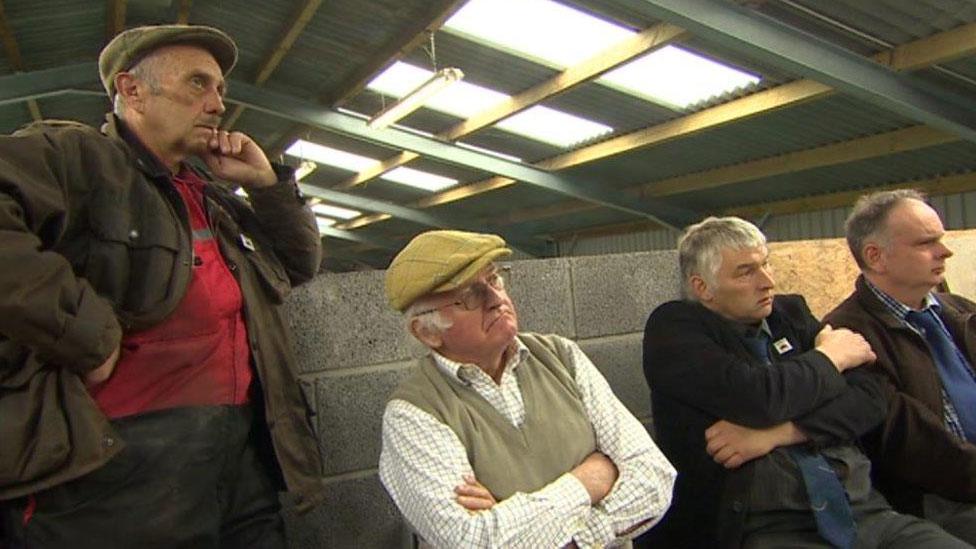Brexit: Farmers in Wales looking for certainty
- Published
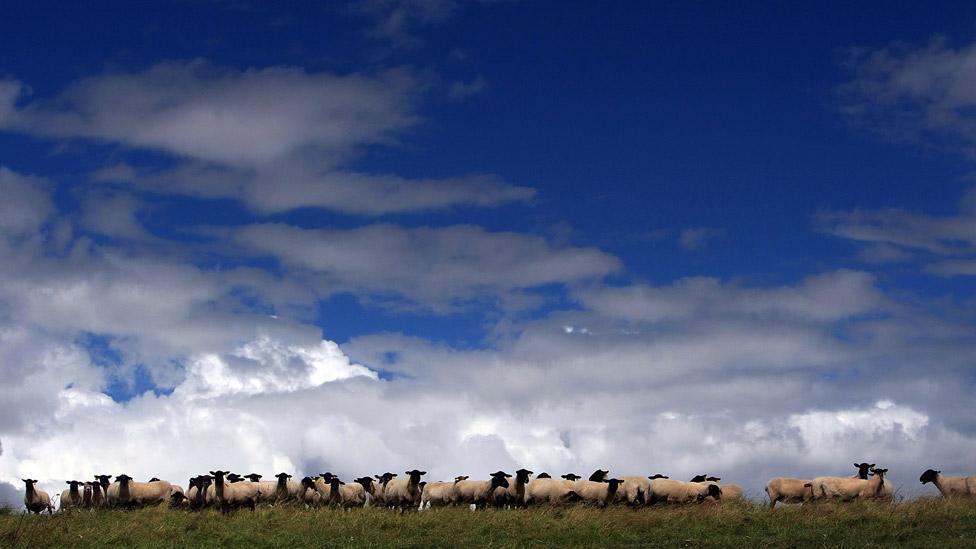
The timescale of the exit will be key to farmers in Wales
As if nothing had changed, Welsh farmers will have risen early this morning to milk their cows or feed their stock.
But it is far from business as usual. The referendum result is the start of a huge shift in the way the industry works here.
For decades subsidy cheques from Brussels - paid now of course in Euros - have helped them turn a profit.
In 2014, £240m was handed down to Welsh farmers in direct payments alone.
Half made a loss or would have done so that year without them.
Meanwhile - between 2014-2020 - £957m is meant to be made available via the Rural Development Programme - a system of grants and loans to support rural communities.
As the UK decouples itself from the EU these payments will continue. But what happens then will be up for discussion.

REACTION FROM WELSH FARMING AND FOOD
The Farmers' Union of Wales was disappointed with the result but called for a "sensible timetable" for Brexit.
FUW president Glyn Roberts said: "There is a monumental amount of work to do in terms of changing domestic arrangements and legislation, including in terms of Welsh devolved legislation, not to mention unravelling us from the EU budget to which we were previously committed, negotiating trade deals and dealing with issues such as border controls."
The union said it had also reached out to other non-member states in order to better understand agricultural models in countries such as Norway and Switzerland.
The National Farmers' Union Cymru said it was important there was minimum of disruption to Welsh agriculture.
President Stephen James said: "At the forefront of most farmers' minds will be the twin questions of what level of access we will enjoy to the European markets and what level of support farmers in Wales might receive once the withdrawal process is complete.
"We must ensure we have the best possible access to Europe's markets and an agricultural policy that guarantees parity of treatment with the rest of Europe. If farm businesses are to plan for the future then they need to know the answers to these questions sooner rather than later."
Meat Promotion Wales chairman Dai Davies said: "Our essential task in the long term is securing the best trading deals for Wales - maintaining our existing export markets in Europe, and continuing our work in developing new trading relationships further afield."

VIEWS FROM FARMERS DURING THE CAMPAIGN
Two Welsh farmers give their views on whether Britain should remain or leave the European Union.

Both farming unions in Wales have convened special meetings to consult on their key priorities.
They will be seeking urgent meetings with the Welsh and UK governments to talk about the development of a British system of payments for farmers to replace the EU subsidies.
Negotiating continued access to the single market will also be vital - over ninety percent of Welsh beef and lamb is currently exported to the EU.
The timescale of exit will be key to Welsh farmers. They will not want hasty decisions made but will also need certainty for their businesses as soon as possible.
- Published24 June 2016
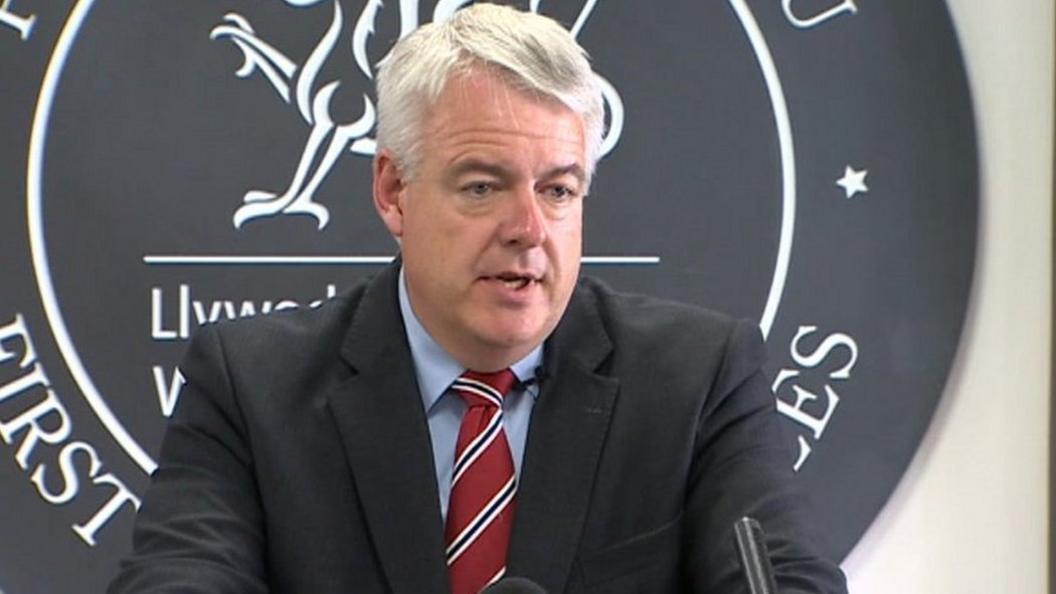
- Published20 June 2016
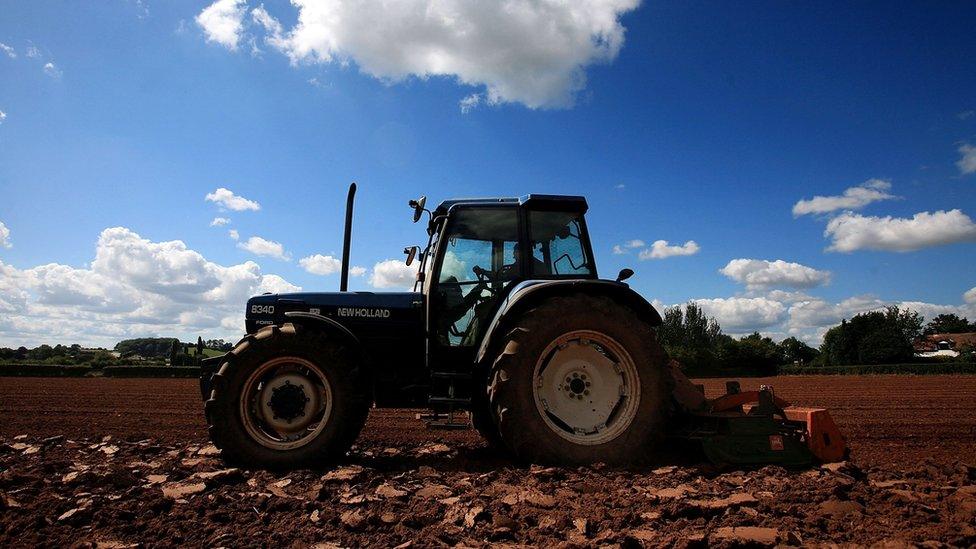
- Published18 April 2016
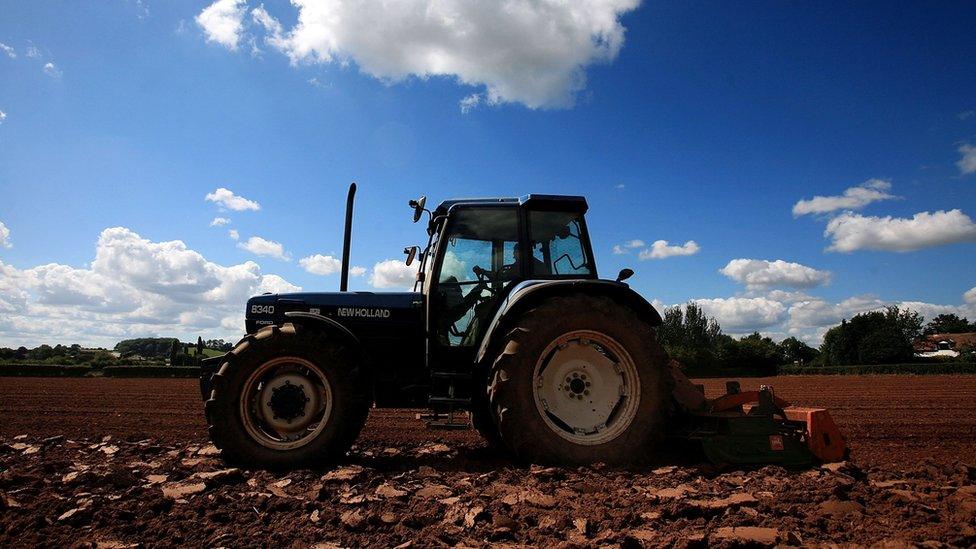
- Published10 May 2016
